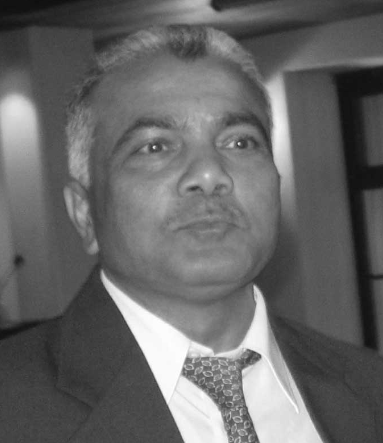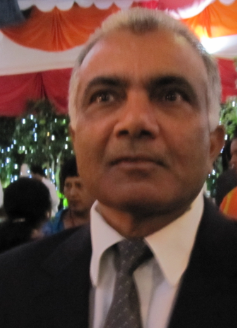-Dev Raj Dahal
“Without civil society, democracy remains an empty shell; without civil society, the market becomes a jungle.” — Michael Ignatieff.
The Nepali civil society groups have performed significant roles in education, health, community development, network building, organizing discourse, providing relief to the needy and peace building initiatives.
These labors have also provided continuous impetus to a peaceful transformation of Nepal ’s political structure and political culture and capture the indispensable conditions of modernity.
The silent social revolution carried by civil society groups in thousands of villages and towns of Nepal has offered the once waning political parties and the ordinary citizen’s vital social energy to speak, agitate and reclaim the sovereignty rooted in citizens and rationally shape the power relationships in society.
The distinction between a ritual and rational civil society in Nepal is marked by obvious elements: rational civil society groups are discursive, rights-based, competitive and self-chosen by the citizens themselves and emerge from a process of cogent contestation of ideas about good life while ritual form of society is ascriptive, duty-oriented, inherited from the classical tradition of performing good deed and non-discursive in orientation.
Both sets of civil society operate in different spheres of Nepali life.
The rational civil society groups of Nepal have now begun to contest the relationship between popular sovereignty embedded in individual liberty and representative democracy legitimized by majority rule.
In this contestation they naturally defend popular sovereignty rooted in human rights and the accountability of power to those affected by its exercise.
Still, what is crucial for them is to act as a unifying symbol of popular will and prevent the possible anti-democratic spiral in politics, economics and social life.
They can do so if they are not dissolved into party politics and favor national self-determination in matters of public and national interests.
In search of good life Nepali citizens have invented vision and values that underlies the constitution, formed structures and institutions, defined the institutional environment where they had to operate and left their positive impacts on the life of ordinary public.
The challenges for civil society groups in Nepal, however, are varied and complex.
They suffer from self-contradictions especially in areas of autonomy, membership, charity work, supporting the marginalized, rural-orientation, resource utilization and self-governance measures.
In this critical juncture of the nation’s history, Nepali policy makers need to redefine what is possible for civil society to do, what is legitimate for them to do and what they should not do.
They should definitely not do any action that generates a manifest gap between promise and performance. Locating Nepali civil society groups requires us to see their relationships with other actors of governance.
The State: Nepali state, as the only locus of democracy and central organizing element of foreign affairs, is very weak to mediate between citizens and the state.
A decade-long insurgency, earth quake, pandemic and political instability have eroded the state’s monopoly on power, taxation and loyalty of citizens.
It is the resilience of native civil society groups which are complementing the development and political functions of the state and providing the continuity to citizens’ initiatives to cope with their problems.
Social movements of civil society are liberalizing the nature of traditional politics from status-bound to social contract, altering the functions of state and seeking to universalize the human rights of Nepali citizens.
The vision of civil society groups based on freedom, social justice, solidarity and peace-building will continue to hold relevance for Nepal as universal reference points to improve the condition of citizens caught in poverty, inequality, hierarchy and patriarchy.
The task ahead is how to establish a complementarity of interest between the sectoral social action of civil society groups and national action of the state and make both sets of actors inclusive, visible, representative and accountable to larger public action.
Building strong networks of association can lead to enhanced faith in the possibilities of modern politics of responsiveness.
Democracy requires not just political and economic institutions but also voluntary social and civic ones to mediate power and wealth in society, create checks and balances and hold the state and market institutions accountable.
Modern civil society groups have equally played a role in the construction of citizens’ civic identity and emancipate people from their pre-rational, pre-political, non-political and anti-political orientations through the project of emancipation.
As an infrastructure of democracy constituted through citizen-based initiatives they set a strong social base for true participatory democracy.
In the field of democratization what is challenging for Nepali civil society groups is how can they overcome their excessive partisan character, develop autonomy from the interest groups, build coalitions across the various civic groups and enable socially legitimate collective action on matters of public good.
Participatory democracy driven by information revolution does not become functional if civil society groups do not generate the habits of debate and offer political leadership effective opposition and competition on matters of public and national importance.
It is imperative for the Nepali civil society to take interest in the open-ended politics of common good such as security, peace, democracy, livelihood and identity and maintain due diligence that they are not neglected or compromised even for the marginalized and a rule-governed conception of public order is evolved.
Social Microcosm: The irreducible pluralism in Nepali civil society reflects not only diverse life-forms of the nation’s class, caste, gender, region and religion but also an essential aspect of a democratic society.
These groups draw sustenance from the diverse social contexts and historical spirit of citizens’ “community-mindedness” and “public-spiritedness” entrenched into the political culture of duty-bound behavior, dharma and its emancipatory ideals—emancipation of all and not just of the oppressed.

These factors have provided them rich associational life, a culture of mutual trust, cooperation, communication and collective action.
Recent democratic upsurge of Guthis, violence against women, peasant engaged in sugar cane, etc and integration of the movements of subsidiary identities is a good example of how social capital operates in Nepali civil society.
The central challenge for them in the realm of “social” now is to expand the domain of particular form of social capital, such as guthi, dhikuti, volunteerism, public-interest federations, associations, CBOs, NGOs, etc located at certain place into the national scale, beneficial to various communities and to transform diverse people into equal citizens.
The Market: Globalization has internationalized the segmented Nepali market. But, it also contributed to the regional and global participation of Nepali civil society, workers, youth and business community.
It has also ignited fresh reasons for hope from a sort of global political renaissance articulated in the emerging social movements and world social forums. The universality of human rights has endorsed the legitimacy of the plurality of liberal values in the country.
But, political sovereignty would be meaningless if there is no “policy sovereignty,” to enable the Nepalis decide the type of political, economic and social system they prefer for themselves and their children.
The competitive spirit of the Nepali citizens, farms and the state, however, requires strong economic and social foundation of politics. Nepali civil society groups can help the leadership to articulate the policy sovereignty of politics in economic matters and help to define national priorities for action, seek the support of international community and achieve the economy of scale through market efficiency, social integration and ecological, gender, social and intergenerational justice.
There is also an imperative to build trust and seek the synergy of civil society-private sector partnership and enable the torn state to assume basic governance functions—security, rule of law, voice and participation, delivery of public goods and conflict resolution.
Agenda for the Future:
In a phase of problematic democratic transition, the responsibilities of Nepali civil society groups are monumental in scope.
First, democracy building in Nepal requires a political consensus on social contract and establishing the legitimacy of the state action.
Second, modernization of the infrastructure of democracy, such as political parties, NGOs, CBOs, public interest groups and the agencies of socialization is a precondition to democracy consolidation and developing their compliance to the rule of law.
Third, capturing the sovereignty of policy domain is another area to enforce the accountability of governance to public and push for conflict-sensitive programs.
In a governance regime, however, a sound mechanism of mutual accountability of internal and external stakeholders must be built so that resources can be converted into humanitarian action, infrastructural support and self-governance to be undertaken at multi-track levels.

Fourth, development of the linkages of micro and macro institutions of civil society is essential to enable their efficacy in the realization of the vision of good governance that is both just and legitimate.
Similarly, broadening awareness of the citizens about the changing nature of the national and local environment for all the actors, their interest positioning and shift from hostile position to identifying enlightened interests for shared gains for democracy, peace, social justice and progress is crucial.

